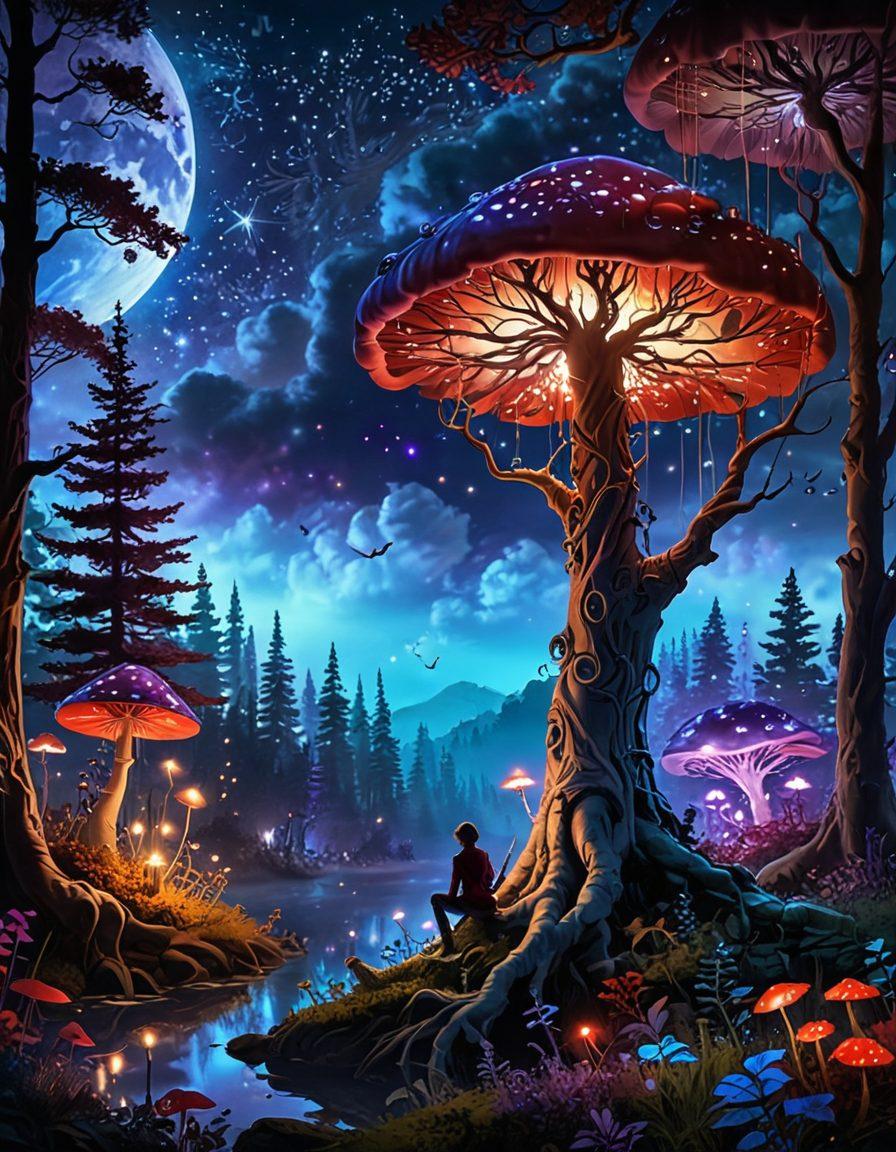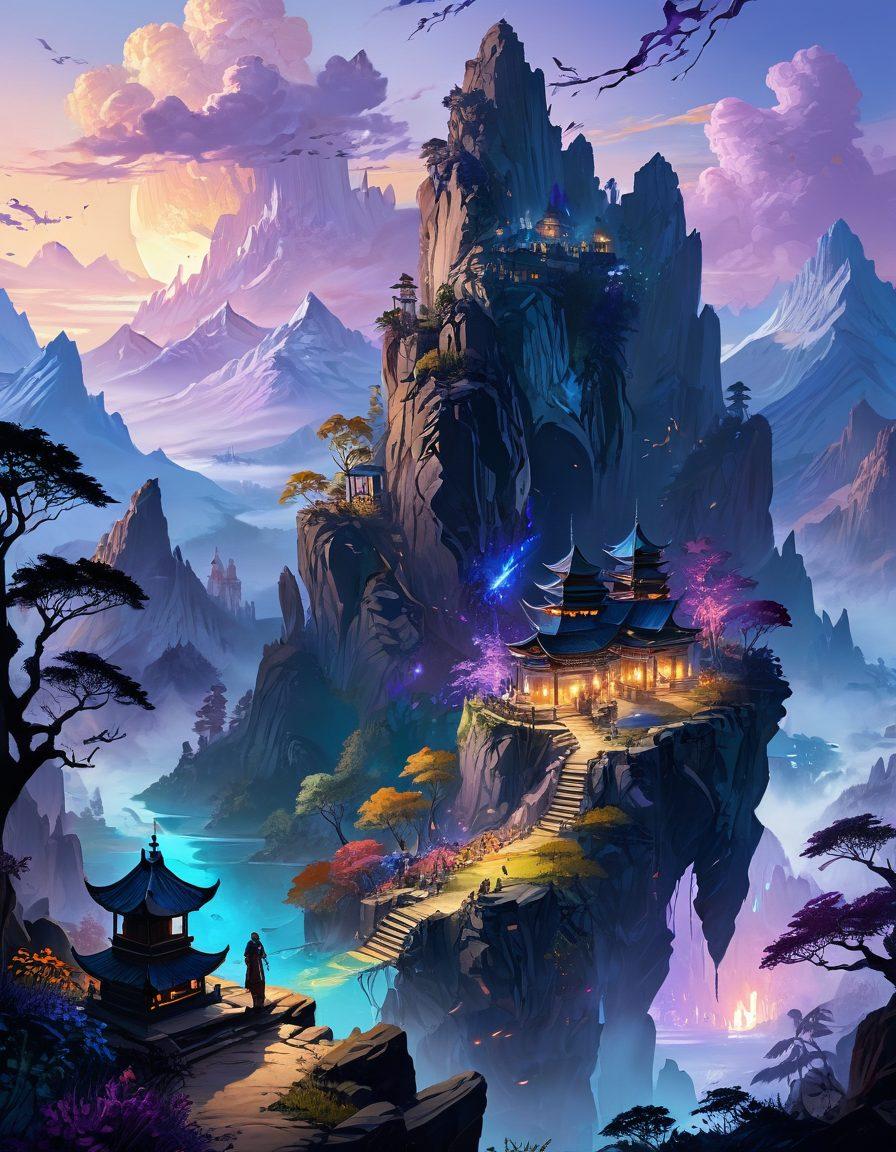Exploring the Depths of Fantasy Literature: Writing Tips and Author Insights from Steven Erikson
Welcome to the mesmerizing world of fantasy literature, where imagination knows no bounds and heroes are forged in unexpected ways. If you're someone who has ever lost themselves in the pages of a sprawling epic or who dreams of creating your intricately woven universe, then diving into the rich waters of Steven Erikson's insights is a journey worth taking. With his masterful grip on storytelling methods and diverse narrative techniques, Erikson not only captivates readers but also inspires budding authors to embark on their own quests in the realm of fantasy fiction. What is it that makes fantasy literature so enchanting? Is it the thrill of magic, the breadth of world-building, or perhaps the relatable struggles of its characters?
Erikson, known for his monumental series, Malazan Book of the Fallen, boasts a unique writing style that blends elements from paleontological studies with a deep understanding of human nature, resulting in nuanced characters and civilizations. This marriage of knowledge and creativity is a lesson for every writer aspiring to craft complex narratives. By exploring the intricacies of Erikson's approach, we can glean valuable lessons in world-building in fiction. How can we infuse our own stories with the depth and texture that Erikson achieves?
One intriguing aspect of Erikson's work is his ability to weave rich tapestries of interlinked plots and timelines, echoing themes found in science fiction literature. This layered storytelling invites readers to engage in literary analysis, to peel back the layers and discover the hidden meanings. An important takeaway for writers is to embrace complexity: allow story threads to intertwine, challenge your characters with morally ambiguous choices, and provide readers with a landscape that feels vast yet intimate. When crafting your world, remember Erikson's advice on character development: each individual must have their own motivations and flaws, lending authenticity to your narratives. Wouldn't you wish for readers to ponder your characters long after they've closed the book?
As we explore Erikson's narratives, we see that effective storytelling isn't merely about constructing a plot; it’s about eliciting genuine emotional responses. Engaging descriptions can evoke vivid imagery - think of the time you were transported to a far-off realm by a single paragraph. Consider layering your descriptions to give depth to scenes, allowing readers to not just visualize but experience them through their senses. This aligns perfectly with the creative writing tips Erikson offers, suggesting writers, allow for spontaneity when creating characters and settings. With all these insights at hand, what excites you most about developing your own fantasy universe?
Finally, in the spirit of building connections with readers, consider incorporating your personal voice in your author blog and book critiques. Engaging with your audience through interviews with authors and literature reviews can not only elevate your platform but also spark discussions that deepen the appreciation for fantasy literature. Look for book recommendations that resonate with your style and share those discoveries with fellow enthusiasts. There's a thrill in sharing your thoughts about the stories that sparked your own journey into fantasy; it may inspire someone else to pick up a pen, or in today's world, a keyboard. So, what's stopping you from exploring the depths of fantasy literature? Your next chapter awaits!
Crafting Epic Tales: Essential Writing Tips and Techniques for Aspiring Fantasy Authors
In the vast expanse of fantasy literature, storytelling methods often distinguish the prose that captivates and resonates from the forgettable. What makes a tale unforgettable? Steven Erikson, the masterful author known for his Malazan Book of the Fallen series, offers wisdom that budding authors can leverage in their own journey. This exploration not only highlights Erikson's unique narrative techniques but also invites aspiring fantasy authors to craft their own epic tales through careful consideration of writing advice gleaned from his work. So, what are the essential tips that can help novice writers elevate their crafting process?
One striking element of Erikson's writing is his deep commitment to world-building in fiction. The immersive universes he creates are layered with complexities that feel genuine yet fantastical. For aspiring authors, this is not just a calling to elaborate on the landscapes and cultures but a challenge to breathe life into their creations. Imagine the thrill of constructing a world where magic flows like water, yet the laws of nature remain intact. To engage readers, consider how your world can reflect and amplify the themes of your story. As Erikson suggests, "Worlds are not merely backdrops; they are characters in their own right." How can your world become as vital as your protagonists?
Moreover, Erikson's narrative techniques provoke thought through layered storytelling. His inventive approach to character development ensures that every figure has depth, motivations, and histories that intertwine with the narrative's larger questions. A valuable lesson here for aspiring writers is to write multidimensional characters that engage readers and compel them to ponder their decisions. Every choice offers an opportunity for conflict and growth, echoing throughout the epic tale. So, how do you ensure your characters leave footprints in the readers' minds? Think of them as real people, equipped with dreams and dilemmas, and ask yourself—what are the choices they must make?
Book critiques and literature reviews offer another wealth of insight into crafting compelling narratives. By studying the successes and missteps of others, particularly in science fiction literature and genre fiction, writers can hone their craft and refine their voice. Erikson emphasizes the importance of observation—after all, everything is a lesson waiting to be learned. Consider diving into author discussions and interviews with authors, where they reveal their journey and the mistakes that shaped their paths. If you're struggling with writer's block or a lack of inspiration, let the stories of established authors ignite your own creative spark. Remember, every writer has faced their trials and tribulations; you're not alone in this journey!
Lastly, creative writing tips aren't solely about the narrative. Erikson shows that they often extend to the writing process itself. From outlining your story arc to the final revisions, the journey of novel writing is as intricate as the tales themselves. When crafting your epic, don't be afraid to experiment with structure; nonlinear narratives or dual perspectives can evoke fresh excitement and engagement. And seek feedback through fiction reviews or author critiques to gain clarity on areas needing polish. In the spirit of Erikson's ethos, continuous learning is the cornerstone of becoming a successful fantasy author. What will you take away from the journey of others to define your own unique voice in the ever-expanding realm of fantasy literature?
From World-Building to Narrative Depth: A Comprehensive Guide to Fantasy Literature with Steven Erikson
Fantasy literature has the unique power to transport readers to worlds unknown, filled with heroes, magic, and profound truths about the human experience. Renowned author Steven Erikson, who has captivated audiences with his epic series 'Malazan Book of the Fallen', stands as a luminary in this vast literary cosmos. So, what is the secret behind Erikson's exceptional storytelling methods? What writing advice can he impart to those who wish to delve into the realms of fantasy fiction? Join me as we explore the depths of writing techniques and world-building in fiction through the lens of Erikson's insights and experiences.
When embarking on the journey of crafting your fantasy novel, the importance of world-building cannot be overstated. Erikson emphasizes that the setting is not just a backdrop; it’s a living, breathing entity that can shape your narrative. Think of it as the stage upon which your characters dance. "Worlds are not merely locations; they are the very essence of our stories," Erikson notes in an author discussion about his writing process. By creating detailed histories, cultures, and even languages, you allow your readers to immerse themselves fully in the universe you’ve meticulously constructed. Start with a question: what is the history of your world, and how does it influence the characters that inhabit it?
In addition to vivid world-building, narrative depth is critical in making fantasy literature resonate. Erikson's novels are rich tapestries of interwoven plotlines and character arcs, demonstrating that every character, no matter how minor, has a role to play in the grand narrative. As he famously stated, "Characters should be as layered as the worlds they inhabit." This brings us to another critical element of Erikson's writing advice: the need for multidimensional characters. When crafting your protagonists and antagonists, delve deep into their motivations and fears. Ask yourself, what do they want, and what are they willing to sacrifice? This depth will enhance your storytelling methods significantly, making your characters relatable to readers.
Engaging readers also requires a solid grasp of narrative techniques. Erikson employs a variety of perspectives and timelines, deftly keeping readers on their toes. He encourages aspiring authors to embrace complexity: "If the reader knows where the story is going from the start, you’ve already lost a part of the magic." Experimenting with storytelling methods not only engages the reader but can also lead you to unexpected plot twists and character revelations. Consider integrating non-linear timelines or multiple viewpoints in your narrative, as these elements can add layers of intrigue to your plot while pushing the boundaries of traditional fantasy storytelling.
As you refine your craft, it is invaluable to consume works similar to what you aspire to write. Literature reviews and book critiques can guide your understanding of what works and what doesn’t in fantasy literature. Erikson often shares his favorite book recommendations during interviews with authors, revealing how diverse reading habits can fuel one’s creativity. Embrace genres beyond fantasy fiction! Exploring science fiction literature, classic novels, or even paleontological studies can enrich your world-building and spark new ideas. Remember, every book you read is a lesson learned, a technique to analyze, and an inspiration waiting to be discovered. So grab a stack of books, dive deep into literary analysis, and allow yourself to grow as a writer while fine-tuning your novel writing tips!


